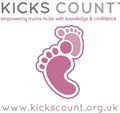Story
In September I will be trekking Ben Nevis in memory of my son Toby to raise vital funds for Kicks Count.
This is my story:
When I was half way through my pregnancy with my son, I went to hospital and I knew something was wrong. I just knew. I shed silent tears on my way to the hospital. I felt sick. I thought this was the worst feeling any mother could feel.
I was so wrong.
Laying there thinking my son was dead, thinking the sonographer was going to tell me he had gone I just felt pain. Then she turned the screen away from me and said “I’m so sorry, there’s no heartbeat”. In that second what I thought was rock bottom suddenly crumbled
away. I fell into a whole world of pain I just couldn’t have imagined, even
when I knew in my heart he had gone. They spoke to me about the birth, about holding him, about taking photos. I didn’t hear a word. I was just trying to take breaths. Trying to get through each second. In hindsight I can only assume its natures way of protecting you. Like there is no way to feel that kind of pain unless you absolutely have to.
Following Toby’s birth I spent days, weeks, months looking up stillbirth figures and support groups. I was horrified. 6500 babies were stillborn every year in the UK, the second worst in the developed world. Stillbirth was 10 times more common than cot death, more than the number that died from cot death, road death and meningitis combined!
There were thousands and thousands of parents feeling the same way I did. So why was it so high? What could be done to reduce it?
There are lots of theories out there that say a baby slows down as they reach the end of pregnancy because they run out of room or they are conserving their energy for birth. I had since discovered this was absolute rubbish. Rather than being a sign the baby is getting ready to be born, it could instead be a sign the baby is in distress. And if more women reported these reductions, a baby in distress can be
delivered and saved. 2 out 3 of women who had a stillbirth noticed a reduction in movement prior to their babies being stillborn.
This is why Kicks Count is so important, if we can encourage every pregnant woman who notices her baby’s movements slow down to call their midwife or maternity unit we have the potential to save a third of stillborn babies. A similar campaign in Norway called “Kicks Count” saw stillbirth rates reduce by 50%.
I have big dreams for this charity and am determined fewer and fewer people will join us in this baby loss community. We want every pregnant woman to understand the importance of monitoring their baby’s movements and ensure they all contact their midwife if they notice a change in their baby’s regular pattern. We do this by printing leaflets with baby’s movement information on that are given out by midwives and in Bounty packs. We also run an up to date website that provides all the information on fetal movements. We would love to be able to continue expanding our messaging and making sure we can reach more and more mums to help us save more and more babies.
Anyone who follows our facebook page will see how many stories we get from mums whose babies have been saved by Kicks Count. This shows how effective the campaign is. But every time we hear of a baby that has been stillborn and a mother that says “I wish I’d known about you sooner” we realize we still have a long way to go. Every penny makes a huge difference to our campaign as just £5 allows us to print 350 leaflets.
So for as long as I can draw breath I will fight for this charity and what we are trying to achieve in memory of all the babies who have never got their chance.
Thanks for taking the time to visit my JustGiving page.
Donating through JustGiving is simple, fast and totally secure. Your details are safe with JustGiving - they'll never sell them on or send unwanted emails. Once you donate, they'll send your money directly to the charity. So it's the most efficient way to donate - saving time and cutting costs for the charity.
